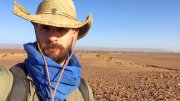Audrey Chang ’25 is a senior in Leverett House, pursuing a joint concentration in statistics and computer science with a secondary degree in sociology. Chang is a member of the Harvard Responsible Computing Collective, a student club which aims to promote responsible use of technology in society.
What is the Harvard Responsible Computing Collective, and why did you start it?
“Harvard Responsible Computing Collective, also called ReCompute, is an interdisciplinary undergraduate community whose goal is to critically examine and improve the societal impacts of technology. Jude Ha, Victoria Ono and I co-founded ReCompute. We differentiate ourselves from other tech-related clubs on campus by fostering an interdisciplinary community of students from fields like sociology and urban planning, focusing on computational tools—not just AI—and creating the first open student group dedicated to collaboratively interrogating responsible tech topics. For example, In what contexts is automation empowering, or not? How much carbon dioxide does it take to train a large machine learning model? Why and how do companies monitor internet traffic? We dive into questions like these through reading groups, research projects, and career exploration.”
You’ve spent a lot of time researching computing in a variety of fields—which project has been your favorite?
“I’m so excited about my thesis! I love that it’s both theoretical and applied, with the potential to address disparities in healthcare. We’re working on improving overconfident predictions in machine learning models with a new concept called atypicality. Models can report confidence scores along with their predictions so we know when to trust predictions, but they can overestimate confidence scores for atypical inputs, which often intersect with underrepresented groups in our data. We’re figuring out how to measure atypicality and develop methods to account for it when reporting confidence scores and working with data from Beth Israel Deaconess Medical Center to apply our methods in a healthcare setting.”
What’s your daily inspiration?
“For me, it’s about the people around me — the ones I get to learn from, collaborate with, and help. My friends also inspire and rejuvenate me. From ReCompute, which is shaped and defined by its incredible members, to my work with the Berkman Klein Center, where folks talk about bird watching and algorithmic auditing with the same vigor, I feel so fortunate to learn alongside individuals filled with enthusiasm and hope.”
What’s your favorite Harvard class?
“I’d have to say Contemporary Ethnography with Tom Wooten. Ethnography is such an incredible craft—it’s all about immersing yourself in other people’s worlds, and learning how they live through careful observation and sociological frameworks. We read a wide range of works, on Orthodox Jewish neighborhoods in L.A. to digital surveillance practices used by urban police departments. In the process, we explored how traditions shape community cohesion, the ways social structures influence daily life, and other concepts that extend far beyond glimpses into the specific communities. I love trying to understand people! I hope to write an ethnography one day.”
What’s one big problem you’d like to help solve?
“Bias in algorithms perpetuates inequities in so many domains, from healthcare to criminal justice, and I believe that addressing it is critical to a more just and equitable society. I want to tackle socioeconomic inequality through algorithmic fairness. I’m especially interested in mixed methods research, where we use ethnographic, sociological methods to unveil areas where technological, statistical, and computational tools can be most useful.”









